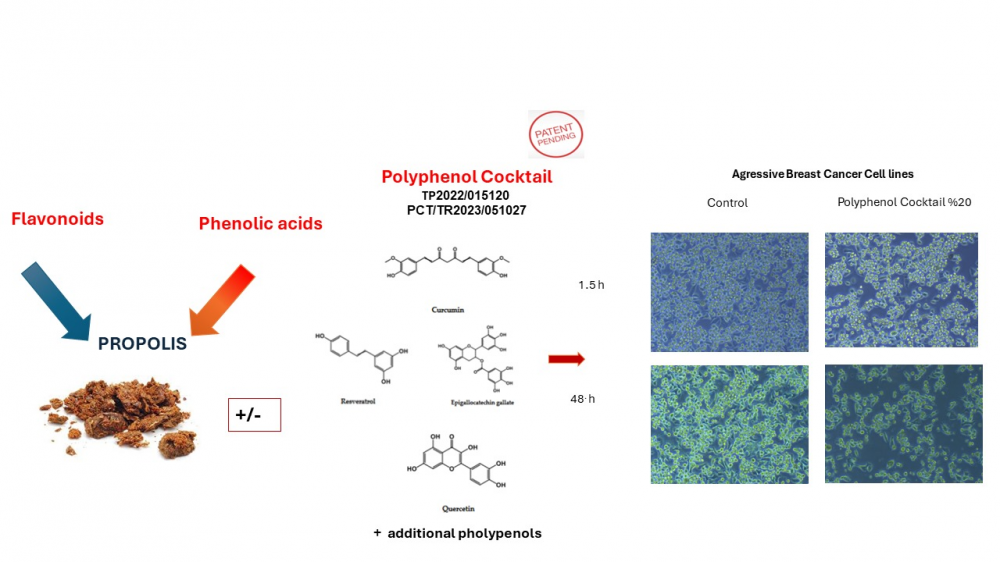JOURNAL 2997
Records of Agricultural and Food Chemistry
Year: 2024 Issue: 3 Special Issue: Abstracts 3rd. TCS, International Food Chemistry Congress February 29-March 03,2024 Antalya Türkiye
p.2 - 2
Viewed 1770 times.
GRAPHICAL ABSTRACT

ABSTRACT
Polyphenols are plant-based compounds that have gained attention for their biological activities, including antioxidant, anti-inflammatory, and anti-cancer properties. They are found abundant in fruits, vegetables, tea, coffee, and red wine, and have been extensively researched for their role in cancer prevention and treatment and in the other wide range of diseases, including heart disease, and neurodegenerative disorders. A large volume of literature data suggests that a diet rich in fruits and vegetables, mostly due to the contribution of natural polyphenols, could reduce the incidence of specific cancers. Polyphenols can inhibit tumor generation, induce apoptosis in cancer cells, and interfere in the progression of tumors. It's important to note that while polyphenols have potential health benefits, it's crucial to consume them as part of a balanced diet and not rely solely on them for health improvements. Regarding cancer therapy, research has suggested that polyphenols may have potential benefits in cancer prevention and treatment. They have been studied for their ability to inhibit the growth of cancer cells, induce apoptosis (programmed cell death) in cancer cells, and interfere with the processes that promote tumor growth and metastasis. Polyphenols and flavonoids have been found to modulate diverse signaling molecules, including kinases, transcription factors, and inflammatory mediators, thereby exerting broad-spectrum effects on cancer cells. Due to their ability to modulate these pathways involved in cancer progression, they are promising candidates for the development of novel cancer therapies. In addition, their low toxicity and favorable safety profile make them attractive agents for combination therapies with conventional cancer treatments. Polyphenols have a diverse nature that enables them to target multiple hallmarks of cancer, making them potential candidates for the development of personalized cancer treatment strategies. Polyphenols have shown potential in complementing existing cancer treatment modalities, from inhibiting the growth of cancer cells to enhancing the sensitivity of tumors to chemotherapy and radiation. As research in this field continues to evolve, the potential of polyphenols in personalized cancer treatment plans becomes increasingly evident. The relationship between natural products and cancer signaling pathways has attracted significant attention, especially in the case of terpenes, polyphenols, and flavonoids. These compounds, which come from plants, have shown great potential in regulating important signaling pathways that are involved in the initiation, progression, and spread of cancer. This has created new opportunities for targeted cancer treatments.
KEYWORDS- Propolis
- cancer
- phenolic compounds